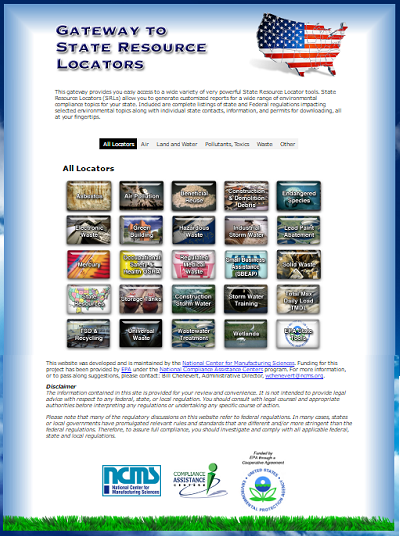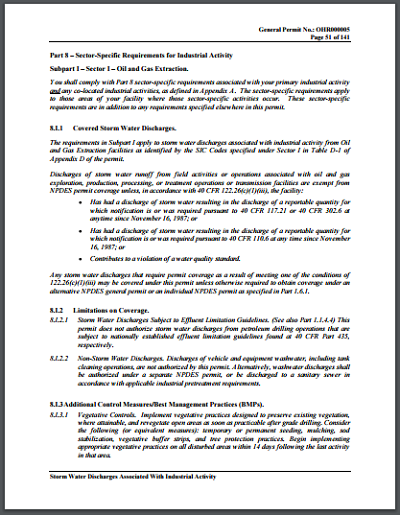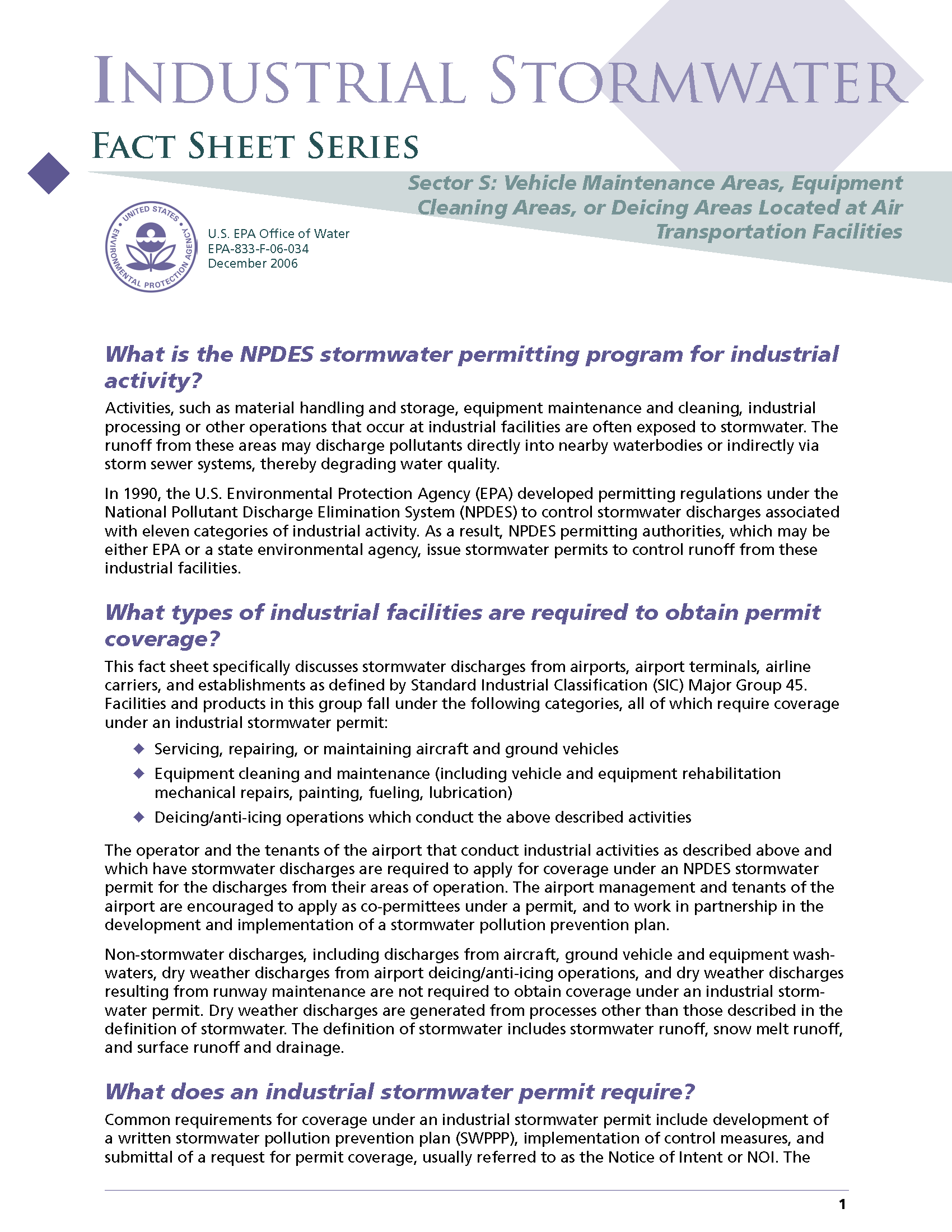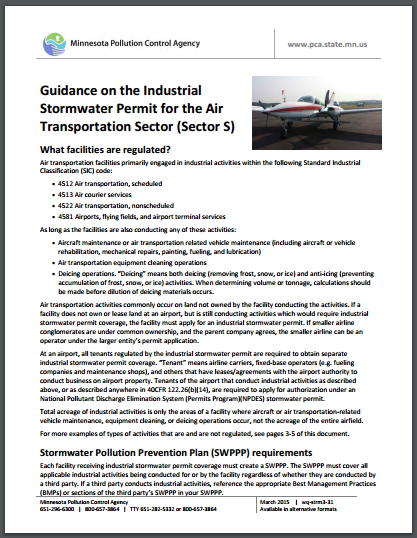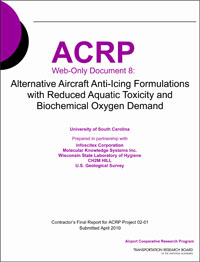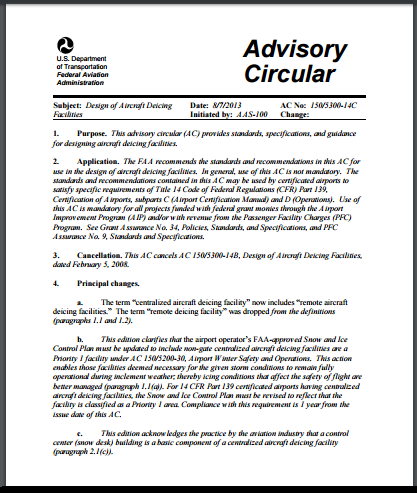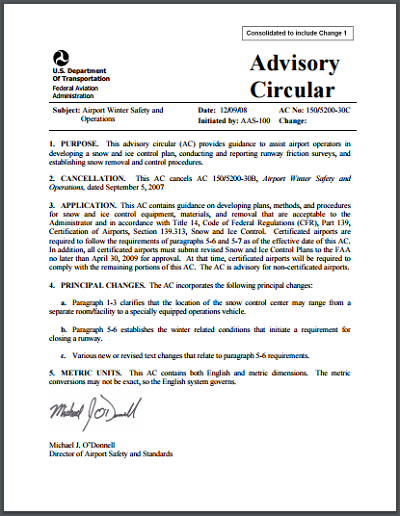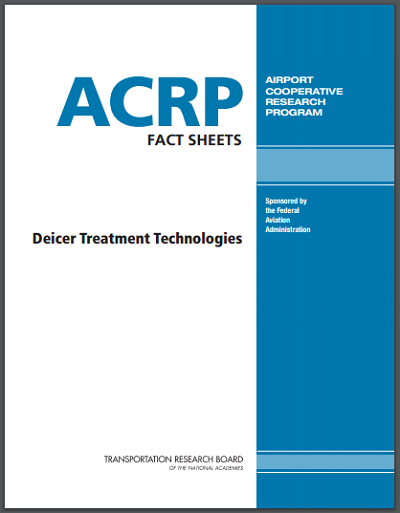Compliance
The Clean Water Act prohibits the discharge of “pollutants” through a “point source” into a “water of the United States” unless authorized by a National Pollutant Discharge Elimination System (NPDES) permit.
The permit will contain limits on what an operator can discharge as well as monitoring and reporting requirements and other provisions to ensure that the discharge does not harm water quality or human health and the environment. In essence, the permit translates general requirements of the Clean Water Act into specific provisions tailored to the operations of each entity discharging pollutants.
Under the Clean Water Act, the NPDES stormwater program regulates airport stormwater discharges from three potential sources: municipal separate storm sewer systems, construction activities, and industrial activities. In addition, the Spill Prevention, Control and Countermeasure Rule (also under the Clean Water Act) regulates discharges of oil, which could contaminate stormwater on an airport site if not properly controlled.
See Stormwater Regulations & Permits for information regarding applicable regulatory programs.
Click on the links below to learn more about specific topics.
-
- Organizational Strategies describes the requirements for airports that have more than one operator discharging stormwater.
- Stormwater Plans describes the compliance monitoring associated with Stormwater Pollution Prevention Plans, Stormwater Management Programs, and Spill Prevention, Controls and Countermeasure Plans.
- Compliance Guidance, Report Forms, and Templates provides information on what needs to be prepared and submitted to ensure compliance.
- Training and Outreach provides information on courses, presentations, and webinars related to stormwater compliance.
- Organizational Strategies describes the requirements for airports that have more than one operator discharging stormwater.
Note: All external links were functional at the time this website was published. If a link is broken, use the title of the document to search for an updated link.
